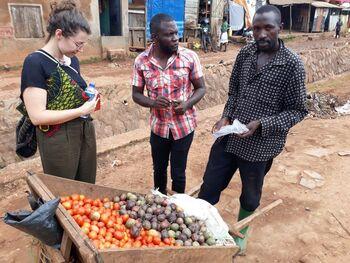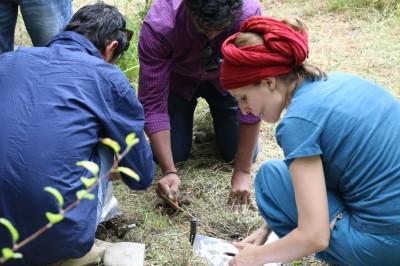Context
The challenges facing the global agricultural and food sector remain numerous and complex. Despite regional successes in combating famine and poverty, the number of undernourished and malnourished people is increasing, including in emerging economies and industrialised countries. At the same time, fertile soil is being lost through erosion, construction and inappropriate land management. Biodiversity is under threat. On top of this, climate change is contributing to the spread of new animal and plant diseases, as well as more droughts, heavy rains and floods.
To tackle these challenges, a range of continuous adaptation measures and innovative solutions are needed that are suitable for smallholder farmers with limited resources. These solutions include everything from drought-tolerant varieties and climate-smart cultivation methods to alternative products for crop protection and animal health. Digital applications for sharing information are also playing an increasingly important role.
Objective
With sufficient personnel and strong partnerships, international agricultural research centres have the capacity to develop agricultural innovations for resource-efficient agriculture.


